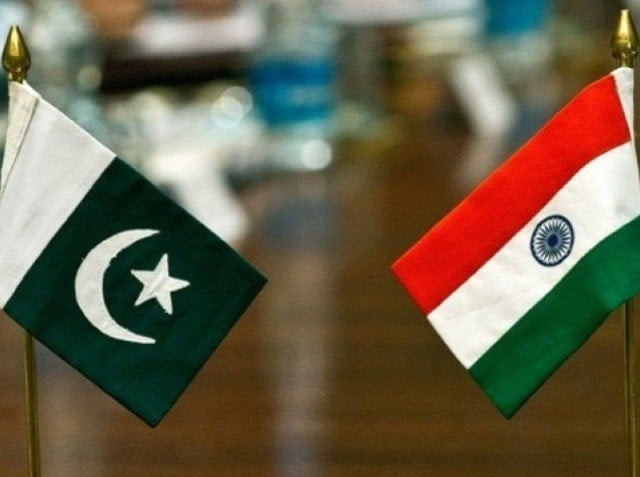Pak battles India's 'hydro terror' at arbitration court
Islamabad accuses New Delhi of altering water flow

Pakistan has formally submitted detailed concerns to the Permanent Court of Arbitration (PCA), accusing India of weaponising Western Rivers' watersa serious breach of the 1960 Indus Waters Treaty (IWT), Islamabad says.
According to the 32 Supplemental Award on the competence of the Court of Arbitration, which is currently examining Pakistan's complaint under the IWT, Islamabad has highlighted alarming shifts in Indian policy since April 23, 2025.
"Pakistan maintains that 'India's policy of "abeyance" since 23 April 2025, together with public rhetoric, has stoked the threats and perhaps the realisation of its new approach: to use dams to manipulate or deny downstream releases to Pakistan'," the award states.
Explaining what it means by "weaponisation", Pakistan has outlined three primary ways in which India could exert control over the Western Rivers' flow, allegedly in violation of the treaty.
"Pakistan recalls that 'weaponisation' in this context concerns three ways India can control waters of the Western Rivers: '(a) the interruption of water supply used for downstream irrigation through the filling of sizeable pondage pools and other reservoirs; (b) the opening of dam gates to release stored water in excessive volumes in a manner that causes flooding downstream; and (c) the rapid, mass release of sediment impacting rivers, land, infrastructure and people living downstream'," the award notes.
On June 27, the international court made a key determination on its authority to hear Pakistan's case.
The Court unanimously held: "India's position that it is holding the Treaty in 'abeyance', however that position may be characterised as a matter of international law, does not deprive the Court of Arbitration of competence."
The ruling elaborates further, acknowledging Pakistan's view that India's "abeyance" stance is not merely rhetorical but actively undermining treaty obligations.
"The international tribunal in its award has highlighted Pakistan's response on India's policy of holding the Treaty in 'abeyance'."
Quoting directly from Pakistan's submission, the court notes: "The tribunal in its order states that according to Pakistan, the 'rhetoric of India's officials and stoked clamour of the Indian media in the period since 23 April now shows that weaponisation scenarios are far from hypothetical'."
Monitoring data collected by Pakistani authorities also forms part of Islamabad's evidence to the court.
"Moreover, based on its monitoring of the flow of the Western Rivers into Pakistan, Pakistan maintains that these 'data show prima facie that, since India's 23 April "abeyance" policy declaration, it has been acting in material disregard of the operational constraints in Paragraph 15 of Annexure D, causingwithout doubt intentionallysignificant variations in the downstream flow of water to Pakistan'."
To support this assertion, Islamabad has provided river flow data showing anomalies after April.
"In support of that contention, Pakistan provides stream flow data for the Chenab as it enters Pakistan, represented as hydrographs, which Pakistan says 'show two significant flow variation episodes, one at the start of May and the second at the end of the month and extending into June'."
Further analysis of the data suggests intentional manipulation of water flow by India, Pakistan alleges.
"According to Pakistan, the 'flow variations indicated in these hydrographs is almost certainly the result of the emptying and filling of the Baglihar HEP reservoir, involving both its 37.5Mm3 of allocated Pondage and, in all likelihood, a significant volume of dead storage as well', with spikes in sediment concentration indicating 'that both were likely drawdown flushing events'."
Efforts to seek clarification from Indian counterparts, Pakistan says, went unanswered.
"While Pakistan's Commissioner for Indus Waters wrote to India's Commissioner for Indus Waters on 27 May 2025 seeking an explanation for these spikes, Pakistan indicates that it received no response as of the filing of Pakistan's Submission," the award confirms.
Pakistan's concluding assessment paints a grim picture of India's intentions under the guise of "abeyance."
"Consequently, in Pakistan's view, 'it is plain that, whatever might have been the intention initially, India's policy of "abeyance" is now simply cover behind which India is acting in breach of its Treaty obligation.'"
The Court of Arbitration is chaired by Professor Sean D. Murphy of the United States, and includes Professor Wouter Buytaert (Belgium), Professor Jeffrey P. Minear (United States), Judge Awn Shawkat Al-Khasawneh (Jordan), and Dr Donald Blackmore (Australia).
According to legal observers, the final award on Pakistan's longstanding complaint about India's alleged treaty violations - particularly concerning design changes to the Kishenganga Hydro-Electric Plant (KHEP) and the Ratle Hydro-Electric Plant (RHEP) on the Western Rivers - is expected to be issued later this summer.




















COMMENTS
Comments are moderated and generally will be posted if they are on-topic and not abusive.
For more information, please see our Comments FAQ